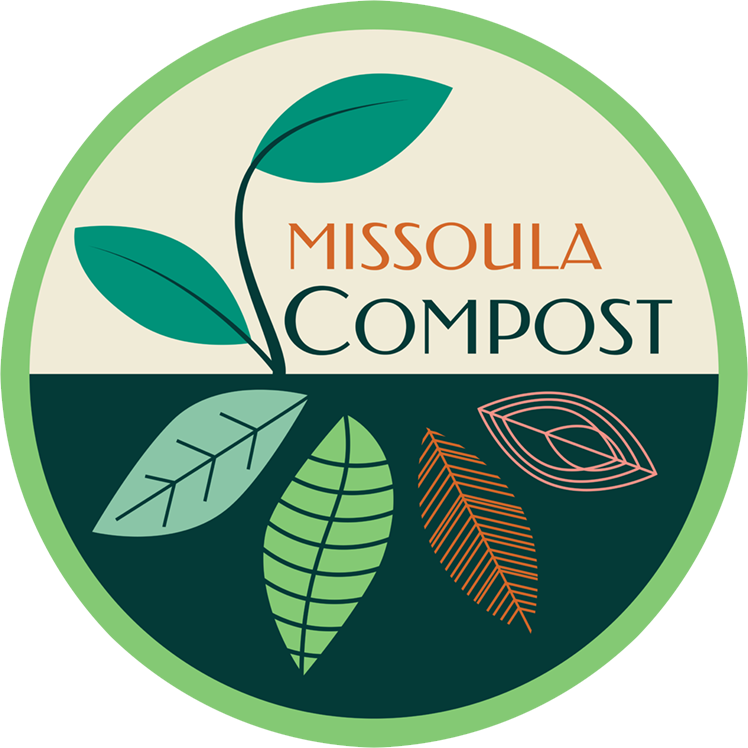A Tale of Two Carrots
The Trash Carrot
The carrot sat in the back of the fridge, forgotten. Wiggly and unappetizing, he was finally tossed “away.” Wrapped in plastic, mixed with cans, scraps, and other packaging, he was thrown into a bin and rolled to the curb.
A truck scooped him up, crushing him under the weight of countless plastic bags, then dumped him into a massive pile of waste. At first, he began to decompose with what little air was left. But slowly, the oxygen ran out.
Trapped in the suffocating heap, anaerobic bacteria crept onto his skin, thriving in the lack of air. They consumed him bit by bit, burping out methane, turning his once-nutritious body into toxic gas. Bits of him crumbled away, sinking into contaminated soil—useless, wasted.
There has to be a better way.
The Compost Carrot
The Compost Carrot sat in the back of the fridge, forgotten. Wiggly and unappetizing, she was finally tossed—but not into the trash. Instead, she landed in the compost bin, wrapped in a bio bag, nestled among other food scraps and eggshells.
Rolled to the curb in a green bin, she was scooped up by a truck decorated with veggies and filled with food scraps, grass clippings, and leaves. At last, she was emptied into a growing pile of compost.
Here, surrounded by fresh air, decomposers got to work. Worms wriggled through the soil, bacteria, and fungi broke down Compost Carrot, and her nutrients seeped back into the earth. The bio bag that contained her dissolved into water and a bit of CO₂, freeing Compost Carrot into the soil.
Her journey wasn’t wasted. She was valuable and ready to grow again.
Composting Makes a Difference
Every year, millions of tons of food waste end up in landfills, creating methane—a greenhouse gas far worse than CO2. This isn’t just bad for the planet; it’s a missed opportunity. Instead of fueling the landfill, we could be nourishing the soil and closing the loop on waste.
Curbside composting is the game-changer our community needs to make huge changes towards sustainability and protect local environments. Curbside composting makes composting accessible, affordable, and easy for every lifestyle. Share bins with friends and neighbors, encourage everyone in the community to compost and make a difference. Over a thousand people and hundreds of businesses in Missoula utilize curbside composting. A huge thank you to those already composting. Join your community in composting to make our soil rich and landfills small.
Missoula Compost Accepts
Fruit & veggie scraps (banana peels, apple cores, coffee grounds)
Eggshells
Yard waste (leaves, grass clippings)
Uncoated paper products (napkins, coffee filters, pizza boxes)
Meat and bones
Dairy products
Certified compostable packaging!
All natural materials can be a part of the soil, every time something is disposed of, a choice is made. Your choices determine the fate of your resources. It’s a simple habit with a massive payoff for our planet. So, next time you’re about to toss that wonky carrot—think again!
Local Compost News!
Lewis and Clark Village has started a composting pilot program.
“In Fall 2024, UM sophomore Vivi Ostheimer applied and received Kless Sustainability funds to start a compost pilot at Lewis & Clark Villages for Spring Semester 2025. With these funds, the Office of Sustainability purchased four large composting carts, mini countertop compost bins for each apartment, and weekly service from Missoula Compost. In the coming weeks, LCV residents interested in composting will meet with zero-waste ambassadors to receive their countertop bin and learn the ins and outs of the composting initiative at LCV.”.
Great work Vivi! We are so excited to support this initiative. Help this program be a success by sharing with friends and family who live in the Lewis & Clark Villages. Learn more here!
Bio Bag: 30% Off Sale
Unlike plastic, bio bags break down into water and small amounts of CO₂, leaving zero toxic residue. Strong enough for kitchen scraps but gentle on the environment, they keep your bin clean and compost contained.
* Spring Prep Special: Get 30% off 3-gallon and 13-gallon bio bags! Use code “CLEANBIN” at checkout. Order now and have them delivered on your pickup day! Promo ends on March 1st, 2025.
+ Pro Tip: For best results, place a paper bag or cardboard at the base of your bin to absorb excess moisture and extend the life of your bio bags.
Make the switch today—sustainable disposal has never been easier!


